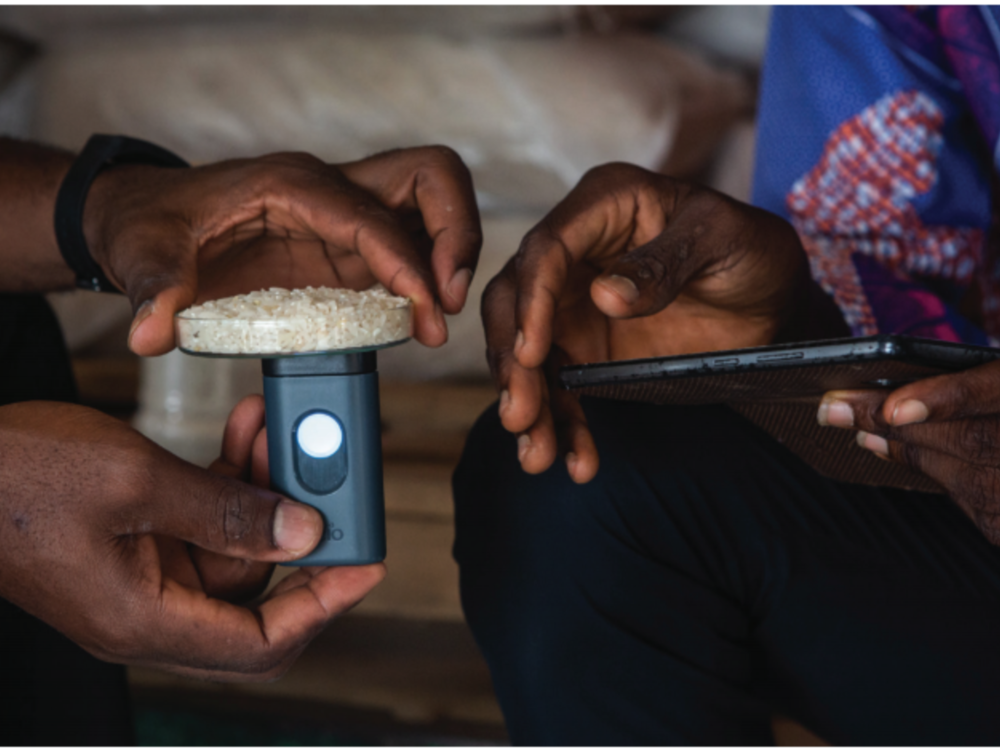
Rice is consumed by more than 3.5 billion people (almost half of the world’s population) and African countries imported more than 7.6 million tonnes of rice amounting to about $ 4 billion. In 2016, there was a wide spread rumour of fake plastic rice in the world and Ghana was not left out. This rumour was ranked 9th of 13 emerging food risks in the world. To make matters worse, the well-known detection techniques were inappropriate for on-site application and needed skilled individuals, it is difficult to use, high cost, and was much labor intensive. It is also often limited to a few sample selection with its own challenges such as high cost, difficult to use, and long duration among others. This notwithstanding, the use of rapid detection techniques for the authentication of the many rice brands in the market is also not available. This means rice will be consumed before the test results are released, furthermore the market surveillance of suspicious rice is normally destructive and limited to only a few samples.
The Department of Agricultural Engineering, School of Agriculture, University of Cape Coast in collaboration with the Institute for Global Food Security, Queens University Belfast through the support from Agilent foundation and MARS technologies conducted a global research on fingerprinting rice: implementing a system to monitor and manage food fraud (a two tier approach). This led to the development of rapid handheld spectroscopic technique coupled with mobile phone for quick on-site non-destructive detection of rice authenticity and quality. The workshop (the first of its kind) was therefore organized to provide participants in the rice value chain with comprehensive training in the use of this aforementioned technology (handheld spectroscopic methods) for rapid detection of authentic/ fraud/contamination rice.
The workshop is therefore timely as the technique provided regulators as well as other players a novel, rapid and inexpensive detection technique for rice authenticity on-site (i.e taking the lab to the sample). This is particularly vital in the face of global rice fraud with its huge socio-economic and health consequences.
The participants of this workshop numbering over 170 included:
the whole actors in the rice value chain: Processors, Breeders, Wholesaler, Retailers, Market women, Farmers, Police officers, Scientist, Media, Investors, Students, Lecturer, researchers, Medical officers, Agric Officers, Bankers, Opinion leaders, Food safety/quality regulators (FDA, Ghana standard board) and Consumers
The Dignitaries who attended the workshop includes:
The Dean of School of Agriculture; Prof Elvis Asare-Bediako (Chairman of the workshop)
College Registrar: Mrs Mildred Asmah
Director (Institute for Global Food Security), Former Pro- Vice of Queens University Belfast and PI: Prof Chris Elliott.
Deputy UK Government Chemist: Mrs Selvarani Elahi
LOC chair and Co-PI: Dr. Ernest Teye
The others are
Breeder: Dr. Maxwell Darko Asante (Crop Research Institute)
Prof Sarah Darkwah (Votech)
Prof J. P. Tetteh (crop science)
Prof. Peter Boamah (Bolga Polytechnic)
Prof John Owusu (Koforidua Technical University)
Dr. Rebecca Owusu (DAE)
Prof. Annor Frempong
Prof Nana De-graft Acquach
Prof. E. A. Ampofo (Soil Science dept, UCC)
Dr. Jane Mbolle Chah (Nigeria)
Prof Isaac Dukuh (Bolga Polytechnic)
Dr. R.S. Amoah (University of Cape Coast)
Dr Francis Kumi (University of Cape Coast)
Mr Washington K. T. Willie (Liberia)
Mr. Joseph Niwagaba (Uganda)
Dr. Enock Duodu (UEW)
Dr. Francisca A. Ansah (University of Energy & Natural Resources)
Dr. Newlove Afoakwah (University for Development Studies)
Dr. Ransford O. Darko (University of Cape Coast)
Our achievement was then captured by Agilent 2018 Corporate Social Responsibility Report (https://www.agilent.com/about/companyinfo/sustainability/) Titled Fingerprinting Rice: Fighting Food Fraud, Saving Lives
Some photos when the technique was tested in the market place and captured in CSR report
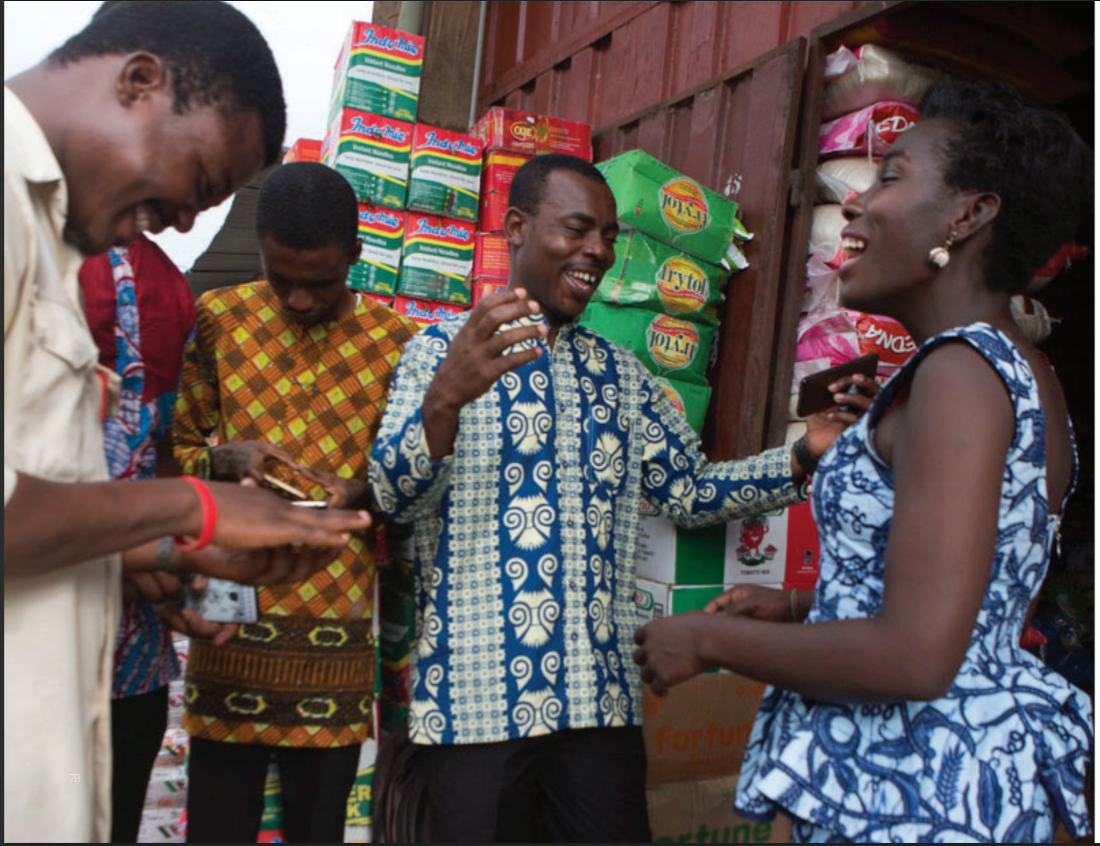
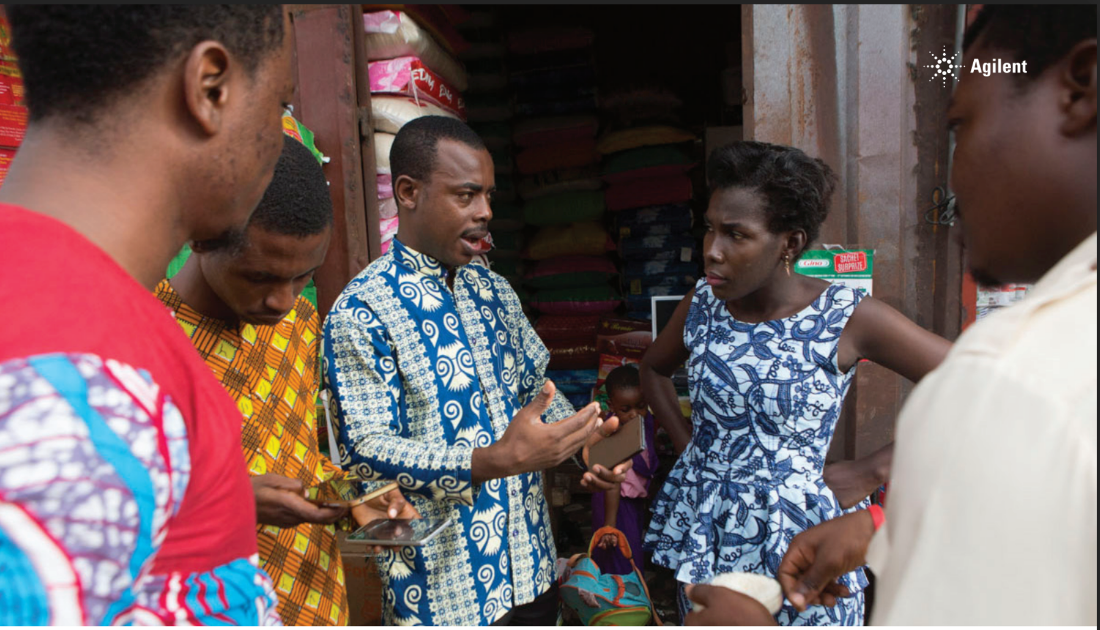
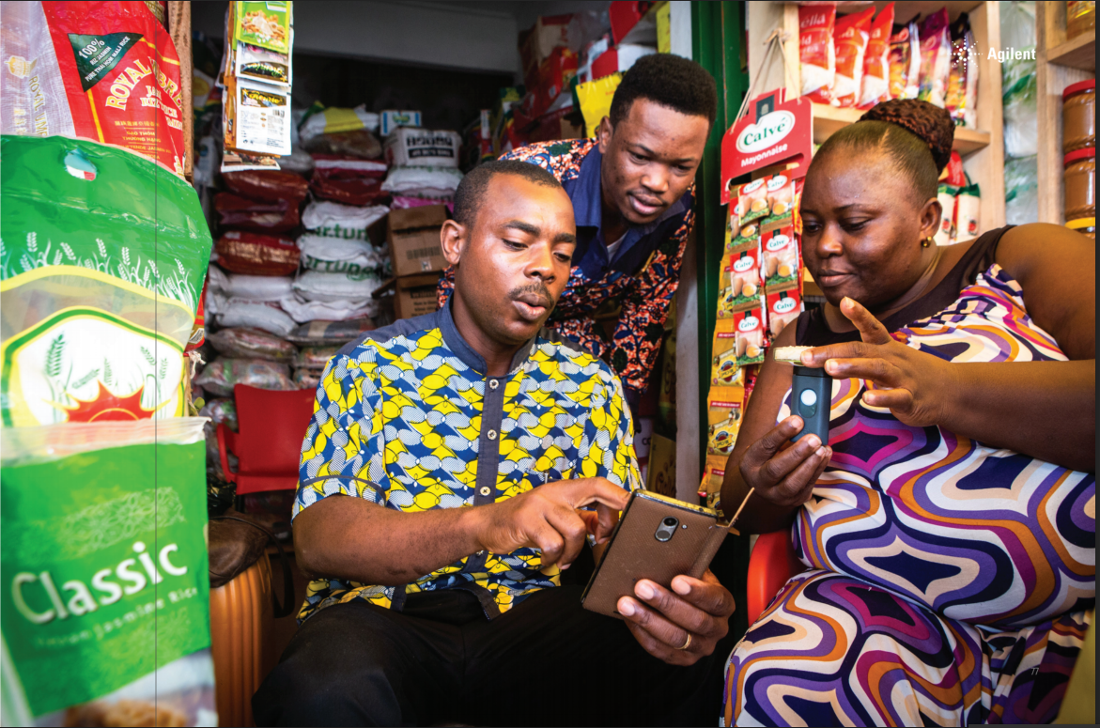
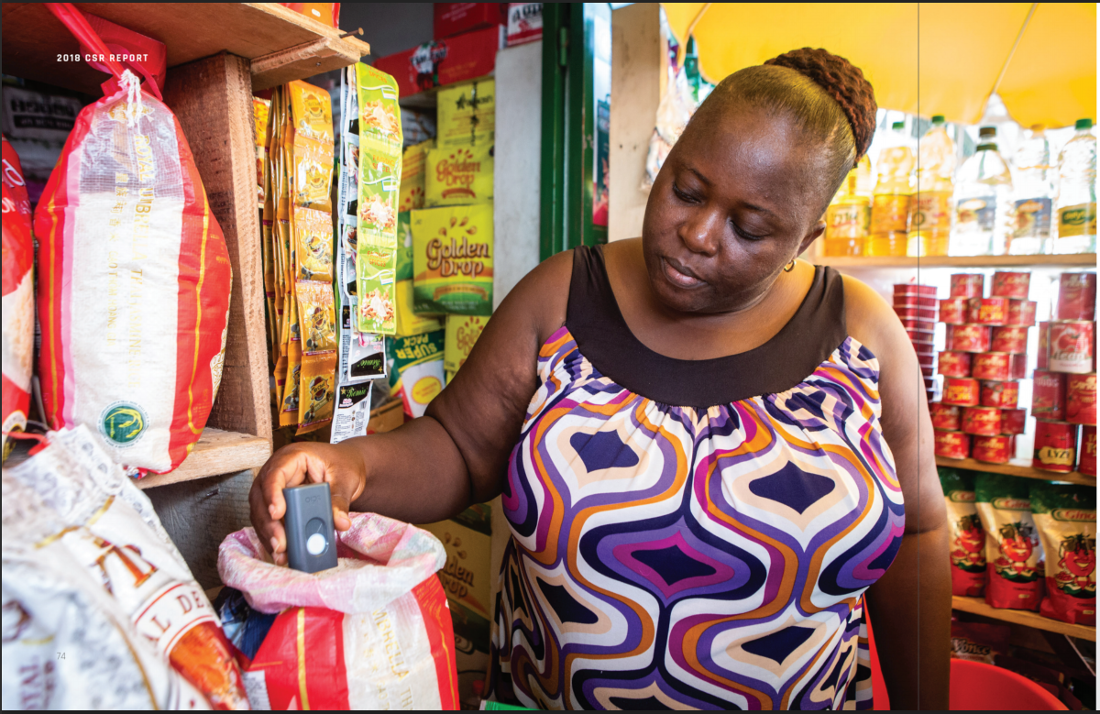
“THE PLAN TO FIGHT FOOD FRAUD
The team agreed that a rapid screening approach that would work in the field was critical, and that hand-held molecular spectroscopy was a good option. At the same time, they worked on developing an extensive library of molecular fingerprints using thousands of rice samples from China, India, Ghana and Vietnam. The rice fingerprints could be stored in the digital cloud, ready to access during rice testing.
